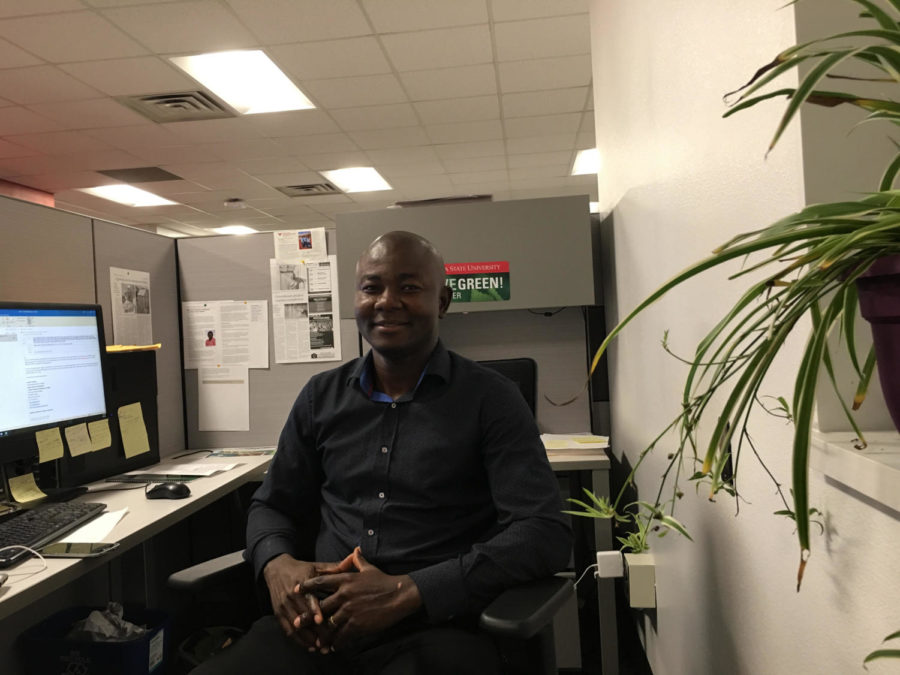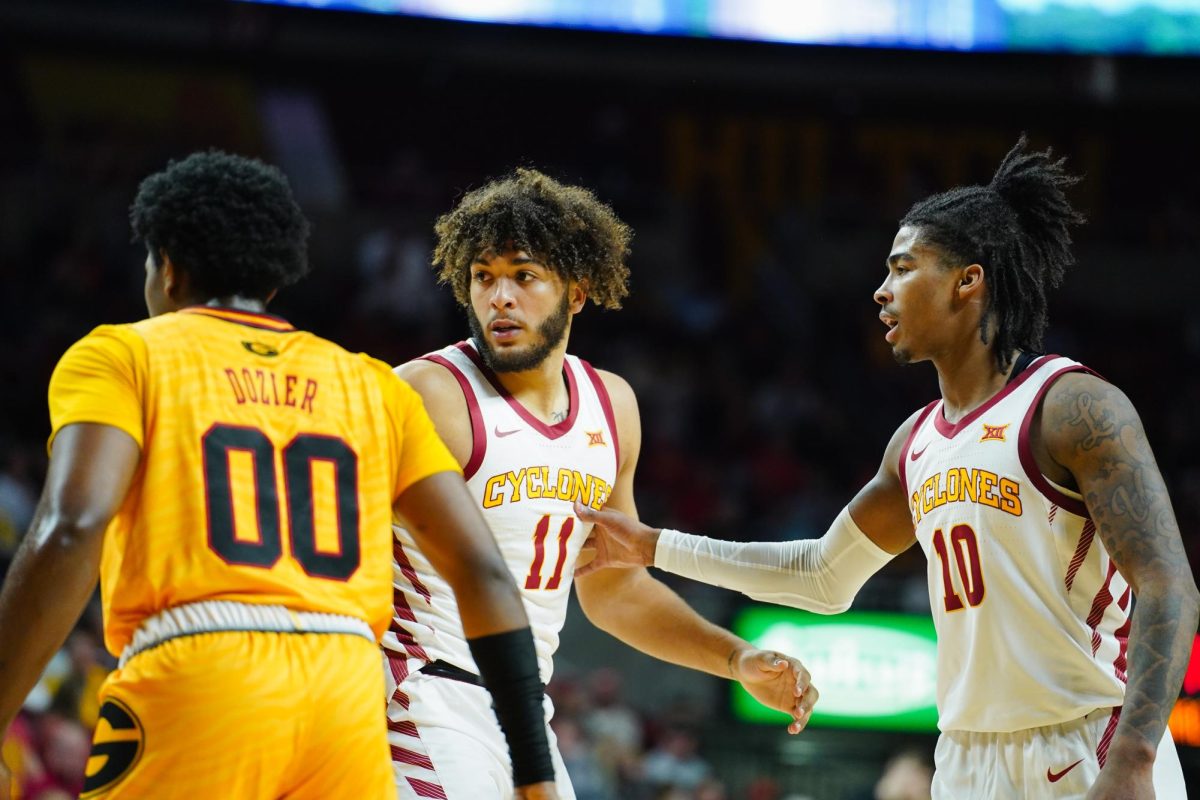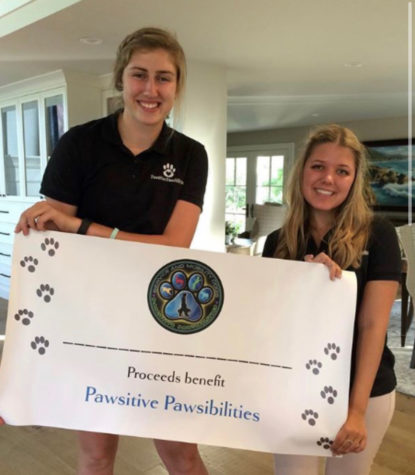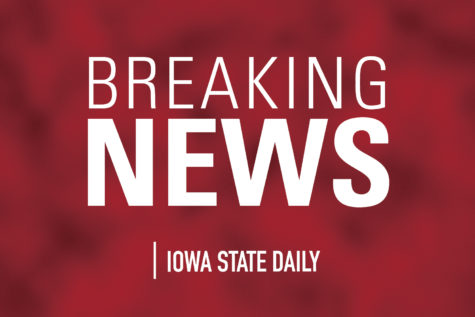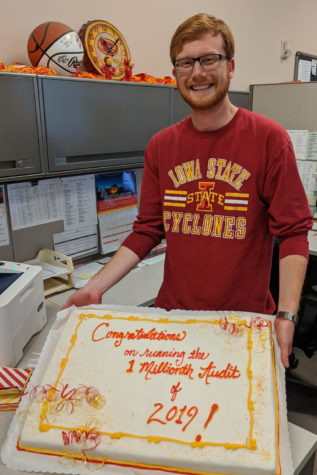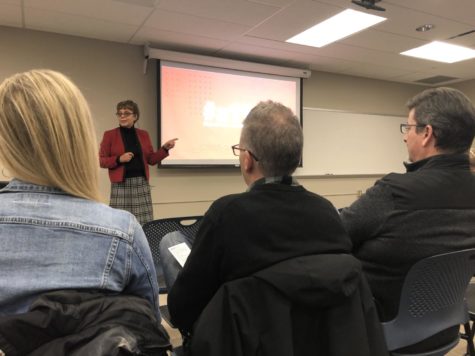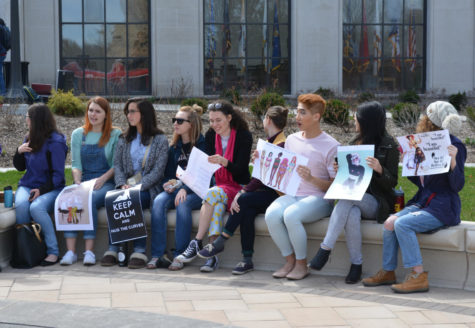New recycling coordinator wants zero waste by 2025
August 28, 2018
Iowa State University generates nearly tens of tons of trash and recyclable waste every week. Most of this waste is trucked over to resource recovery center where it is burned for energy, and much of it ends up in landfills.
This method of recycling is not sustainable, according to Iowa State’s newly appointed recycling coordinator Ayodeji Oluwalana, and he plans to change how Iowa State views recycling.
Oluwalana previously worked a similar position at Western State Colorado University. He organized a new sustainability commitment for the Western State and put them on track to generate zero waste by 2025, a plan he’s bringing to Iowa State as well.
Zero waste doesn’t mean eliminating all waste production. Oluwalana explained it’s a process of dealing with waste effectively so that as little of it ends up in landfills as possible.
“My goal as a sustainability passionate person is to use higher education to promote sustainable waste management,” Oluwalana said. “We can’t keep doing things this way, and we need to ask ourselves what we can do better.”
Oluwalana’s position as recycling coordinator has been vacant for the past 15 years. It operates under Iowa State’s Facilities Planning and Management (FPM) branch, whose director said Oluwalana is a much needed addition to the university.
“We’ve really had our recycling program on idle mode for those fifteen years,” said Bob Currie, an FPM director. “We knew if we were going to get serious about sustainability we’d need to assign this to somebody that’s passionate and has a background in sustainability.”
Oluwalana fits that mold. He obtained a master’s degree in environmental management and sustainability from Western State Colorado University after a series of floods devastated his home community in Nigeria.
“In 2012 my family was affected by flood disaster,” Oluwalana said. “You can imagine what two weeks of nonstop torrential rains could do. We all lost property, friends and family, and it was in large part due to poor waste management. You can only push nature so far.”
Oluwalana’s plan is still in its early stages. Right now FPM’s General Service Building is acting as a guinea pig for Oluwalana’s recycling policies. This includes drastically decreasing the number of trash cans on campus, replacing them with recycling bins and offering clear, concise signage to help students and faculty dispose of their trash effectively.
He explained the Environmental Protection Agency’s (EPA) idea of waste hierarchy, which lists recycling methods based on how sustainable they are. They order reduce, reuse, recycle, recovery and landfill as all available methods, with reduce being most preferred and landfill being the least.
“Right now, Iowa State goes straight to the recovery stage,” Oluwalana explained. “We need to be asking ourselves ‘Do we really have the right set up?’”
Oluwalana said we need to focus more energy on the top of waste hierarchy.
“What we’ve been doing, I wouldn’t call it recycling,” he said. “We’re missing the parts of reduce, reuse and recycle.”

